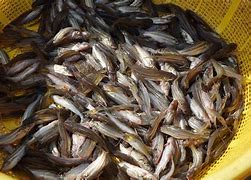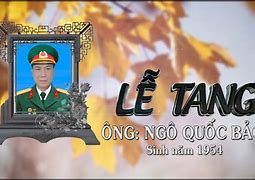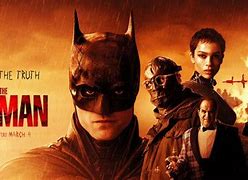
Đề Cương Tiếng Anh Lớp 7 Friends Plus
Đề cương ôn tập Tiếng Anh 7 Friends Plus học kì 1 năm 2024 - 2025 hệ thống kiến thức lý thuyết và các dạng bài tập trọng tâm để các bạn ôn luyện.
Đề cương ôn tập Tiếng Anh 7 Friends Plus học kì 1 năm 2024 - 2025 hệ thống kiến thức lý thuyết và các dạng bài tập trọng tâm để các bạn ôn luyện.
Bài tập ôn thi kì 2 môn Tiếng Anh 6 - Friends Plus
I. Give the correct form of the verbs in the brackets
1. She (spend) ____ all her money last week.
2. Mum (not spend) ___________ any money on herself.
3. I (lend) __________ my penknife to someone, but I can't remember who it was now.
4. John and his father (build) ___________ the cabin themselves last year.
5. My parents (sell) ____________ the stereo at a garage sale.
6. ___________You (tell) ___________ anyone about this yesterday?
7. The unidentified plant (bear) ___________ gorgeous flowers.
8. She (tear) ___________ the letter to pieces and threw it in the bin.
9. He often (wear) ___________ glasses for reading.
10. Before God He (swear) ___________ he was innocent.
11. Yesterday Clouds (creep) ___________ across the horizon, just above the line of trees.
12. We both (sleep) ___________ badly that night.
13. She (weep) ___________ for the loss of her mother.
14. Jane (keep) ___________ the engine running.
15. A huge wave (sweep) ___________ over the deck.
16. Mum (pay) ___________ for my driving lessons.
17. He (lay) ___________ his hand on my shoulder.
18. He (break) ___________ the biscuit in half and handed one piece to me.
19. He (choose) ___________ his words carefully as he (speak) ___________.
20. He …………………to the zoo last Sunday (go)
21. She (not /watch)………………………………TV last night.
22. They (meet)…………………………their friends at the movie theater last week.
23. What……………you (do)…………………last night.
24. ……………………… they (buy)…………………a new car two days ago?
25. We ………….. (have) a lot of homework yesterday.
II. Provide the correct form of the verbs in the brackets
1. She (come) to her grandfather’s house in the countryside next week.
2. We (go) camping this weekend.
3. I (have) my hair cut tomorrow because it’s too long.
4. She (buy) a new house next month because she has had enough money.
5. Our grandparents (visit) our house tomorrow. They have just informed us.
6. My father (play) tennis in 15 minutes because he has just worn sport clothes.
7. My mother (go) out because she is making up her face.
8. They (sell) their old house because they has just bought a new one
III. Write the conditional sentences from the following statements
1. People will throw rubbish into the right bin. They will keep the environment clean.
If _______________________________
2. We will turn off the tap when brushing the teeth. We will save a lot of water.
If ____________________________
3. People will travel more by public transport. The harmful gases in big cities will be reduced.
If _________________________________
4. We will start at six. We will arrive there before noon.
If ____________________________________
5. The boy eats so may green apples. He will be ill.
If ______________________________
6. We will use reusable bags for shopping. We will reduce waste.
If ____________________________
IV. Complete the words in the texts.
Kai: My favourite meal is breakfast. I like all the different food you can have! I often have an e…………… with some b…………….and I usually drink some cold j ____ with that. A good breakfast is the best start to the day!
Jasmine: I like healthy food. I love eating f………….for example, grapes or a nice a………….For lunch, I often have a s…………..with cucumber and a lot of other things in it. If I make a pizza, I put a lot of v…………….. on it and of course, some c………. I don't like unhealthy fast food such as b…………and c……………..
I. Give the correct form of the verbs in the brackets
1. She (spend) __spent__ all her money last week.
2. Mum (not spend) ________didn't ___ any money on herself.
3. I (lend) _____lent_____ my penknife to someone, but I can't remember who it was now.
4. John and his father (build) _____built_____ the cabin themselves last year.
5. My parents (sell) _________sold___ the stereo at a garage sale.
6. ______Did_____You (tell) ______tell_____ anyone about this yesterday?
7. The unidentified plant (bear) _____bore______ gorgeous flowers.
8. She (tear) _______teared____ the letter to pieces and threw it in the bin.
9. He often (wear) ____wore_______ glasses for reading.
10. Before God He (swear) ____swore_______ he was innocent.
11. Yesterday Clouds (creep) _______crept____ across the horizon, just above the line of trees.
12. We both (sleep) ____slept_______ badly that night.
13. She (weep) ______wept_____ for the loss of her mother.
14. Jane (keep) _____kept______ the engine running.
15. A huge wave (sweep) _____swept______ over the deck.
16. Mum (pay) _____paid______ for my driving lessons.
17. He (lay) _______laid____ his hand on my shoulder.
18. He (break) ______broke_____ the biscuit in half and handed one piece to me.
19. He (choose) ____chose_______ his words carefully as he (speak) _____spoke______.
20. He …………went………to the zoo last Sunday (go)
21. She (not /watch)…………………didn't watch……………TV last night.
22. They (meet)…………met………………their friends at the movie theater last week.
23. What…did…………you (do)………do…………last night.
24. ……………Did………… they (buy)…………buy………a new car two days ago?
25. We ………had….. (have) a lot of homework yesterday.
II. Provide the correct form of the verbs in the brackets
III. Write the conditional sentences from the following statements
1 - If people throw rubbish into the right bin, they will keep the environment clean.
2 - If we turn off the tap when brushing the teeth, we will save a lot of water.
3 - if people travel more by public transport, the harmful gases in big cities will be reduced.
4 - If we start at six, we will arrive there before noon.
5 - If the boy eats so may green apples, he will be ill.
6 - If we use reusable bags for shopping, we will reduce waste.
IV. Complete the words in the texts.
Đề cương ôn tập cuối kì 1 tiếng Anh 7 Friends Plus năm 2024
Where we spend time (Nơi chúng ta dành thời gian)
Screen time (Thời gian trên màn hình)
Free time activites (Những hoạt động rảnh rỗi)
Present simple: affirmative, negative and questions (Hiện tại đơn: câu khẳng định, câu phủ định và câu hỏi)
(-) S + am/ is/ are + not + N/ Adj
(-) S + do/ does + not + V-infinitive
(?) WH-word + am/ is/ are + S +…?
1. Listening: Free time activites
I can understand people when they talk about their hobbies
(Nghe: Các hoạt động trong thời gian rảnh: Tôi có thể hiểu mọi người khi họ nói về sở thích của họ)
2. Speaking: Thinking of things to do
I can make and respond to suggestions
(Nói: Nghĩ ra những việc cần làm: Tôi có thể đưa ra và trả lời các đề xuất)
I can read comments and opinions, and understand the main ideas
(Đọc: Thời gian trên màn hình: Tôi có thể đọc các bình luận và ý kiến, đồng thời hiểu được các ý chính)
4. Writing: A profile for a web page
I can write about myself using ‘and’, ‘also’, and ‘too’.
(Viết: Một hồ sơ cho một trang web: Tôi có thể viết về bản thân mình bằng cách sử dụng 'and', 'also' và 'too')
Sentence stress (Trọng âm trong câu)
Present continuous: affirmative, negative and questions (Hiện tại tiếp diễn: câu khẳng định, câu phủ định và câu hỏi)
Wh- + am/ are/ is (not) + S + Ving?
I can understand and use telephone language
(Nghe: Trên điện thoại: Tôi có thể hiểu và sử dụng ngôn ngữ điện thoại)
2. Speaking: Making plans over the phone
(Nói: Lập kế hoạch qua điện thoại: Tôi có thể lập kế hoạch với bạn bè)
I can identify the main topics in an article
(Đọc: Biểu tượng cảm xúc: Tôi có thể xác định các chủ đề chính trong một bài viết)
4. Writing: A report on a survey
I can use ‘but’ and ‘however’ to contrast results
(Viết: Một báo cáo về một cuộc khảo sát: Tôi có thể sử dụng 'but' và 'however' để đối chiếu kết quả)
People and places (Con người và địa điểm)
Museum exhibits (Triển lãm trong bảo tàng)
was, were, there was, there were
Past simple: affirmative, negative and questions (Quá khứ đơn: câu khẳng định, câu phủ định và câu hỏi)
(-) S + did not/didn’t + V (nguyên thể) + …
(?) Did + S + verb (nguyên thể)?
(Nghe: Động từ thường: Tôi có thể mô tả một cuộc hành trình)
I can give my opinion on past events
(Nói: Cuối tuần của bạn: Tôi có thể đưa ra ý kiến của mình về các sự kiện trong quá khứ)
I can use photos to help me understand the text
(Đọc: Bảo tàng trưng bày: Tôi có thể sử dụng ảnh để giúp tôi hiểu văn bản)
I can order events in the past using sequencing words
(Viết: Một sự kiện đặc biệt: Tôi có thể sắp xếp các sự kiện trong quá khứ bằng cách sử dụng các từ sắp xếp)
Actions and movement (Hành động và chuyển động)
A moment in time (Một thời điểm trong khoảng thời gian)
Word stress in questions (Trọng âm của từ trong câu hỏi)
Past continuous: affirmative, negative and questions (Quá khứ tiếp diễn: câu khẳng định, câu phủ định và câu nghi vấn)
(-) S + wasn’t/ weren’t + V-ing
(?) Wh questions + was/were + S + V-ing (+ O)?
1. Listening: Adjectives and adverbs
I can listen to someone describing photos, and understand the main ideas
(Nghe: Tính từ và trạng từ: Tôi có thể nghe ai đó mô tả ảnh và hiểu ý chính)
2. Speaking: Expressing interest
I can show that I’m interested in a topic
(Nói: Bày tỏ sự quan tâm: Tôi có thể cho thấy rằng tôi quan tâm đến một chủ đề)
I can predict what an article is about using the title and photos
(Đọc: Một thoáng: Tôi có thể dự đoán nội dung của một bài viết bằng cách sử dụng tiêu đề và ảnh)
4. Writing: The story of a rescue
I can write a description of an event using linking words
(Viết: Chuyện cứu người: Tôi có thể viết mô tả về một sự kiện bằng cách sử dụng các từ nối)






















